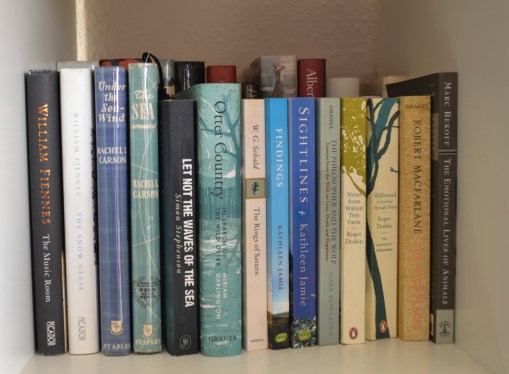Over half-term last week I went for a walk with a friend to check on some calves. The animals heard us coming and called down to us from the high path. It was bitterly cold and not the sort of weather for standing around even though we were protected from the worst of the wind by some sheltering trees. It was a short walk, but one I wished were longer because my friend asked me a question that stopped me in my tracks.
‘What motivates you?’
At the very least, that’s a five-mile question. My friend had already mentioned the idea of legacy and that had got me thinking about what I would wish to leave behind once my life is spent. A legacy is different from a memory, from merely not being forgotten. A legacy is more than a single act. A legacy requires something like a body of work, or at least consistent effort in that direction.
When I first started to write professionally, I didn’t think about what it would all amount to. I just poured all my energy into the current writing project and came up for air months, or more often years later. Since I completed my last writing project, I’ve given myself a bit more recovery time than usual because I now want to write only when I have something worthwhile to say. I’m no longer interested in writing for the income alone. I now feel that whatever I write next will be written out of passion.
‘Passion motivates me.’
All the books I adore, all the art I love, all the films that mean something to me, all the people I admire have passion. I’m reminded now of another friend who lost her art a few months ago and has spent this winter working on new beautiful, intricate, extraordinary work, in an ecstasy of relief that she is still able to find the motivation and the heart to not reproduce but fully recover her art. I, for one, can’t wait for her first exhibition because I know that the work has been created through passion. ‘I can’t explain it,’ she said when she showed me her work. ‘But I just love it.’
Loving what you do is a legacy as long as you love it and practise it even when you feel disheartened. Even when you feel that no one is listening. After the walk to see the calves, we settled down in front of the fire with a pot of tea and some fudge brownies. We talked about philosophy. One of the benefits of my job teaching philosophy is that it immediately encourages people to talk about big stuff.
A theme emerged: how to find meaning in life. No matter how far you stray in philosophical enquiry – and it is possible to wander quite far and get lost in the woods – this theme turns up nearly every time to guide you back to what’s important. What life is for is the ultimate philosophical question. Socrates built his career around it; Plato was preoccupied by the best way to organise society and Aristotle was keen to find the answer to lasting happiness or eudaimonia, a state closer to well-being or what we might call fulfilment.
What fulfils us also brings us closer to well-being. The difficulty lies in finding a job or a cause or a way of life that allows us to become fulfilled.
‘It’s just so difficult to get heard.’
This from a teenager who was joining in the fireside debate. Already he recognises how hard it will be to make his mark in his chosen field of engineering. Here is a teenage boy with a passion to build something great. Does it matter if he doesn’t get heard?
I think his point about competition is sobering, but only part of the story. If you choose to build or create one of the first things you must do is to ignore the competition. Not because you don’t care what has gone before, not even because there is plenty of wonderful work out there that totally inspires you, but because you are creating your own legacy. When you are ready to build, you will find people who are ready to listen.

